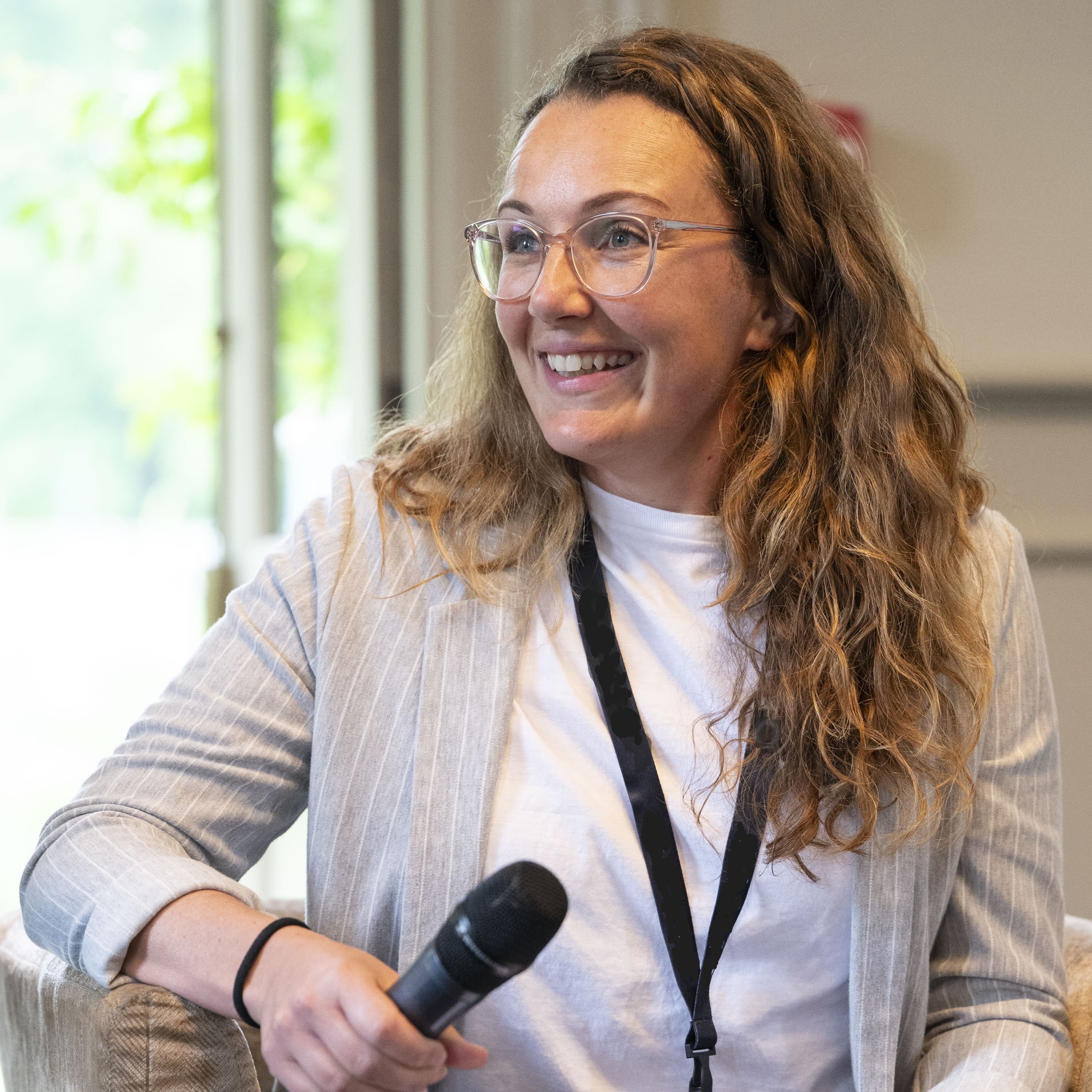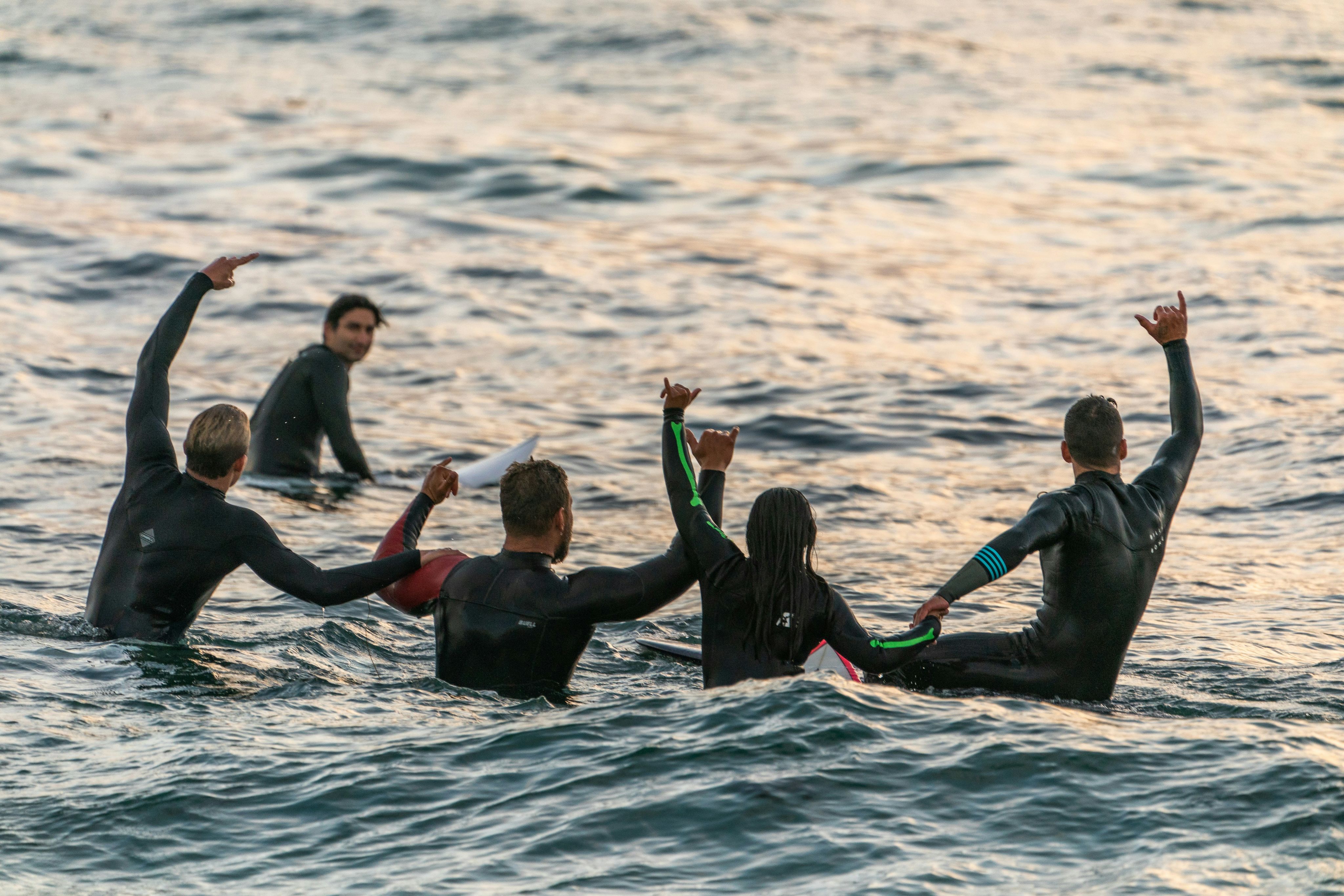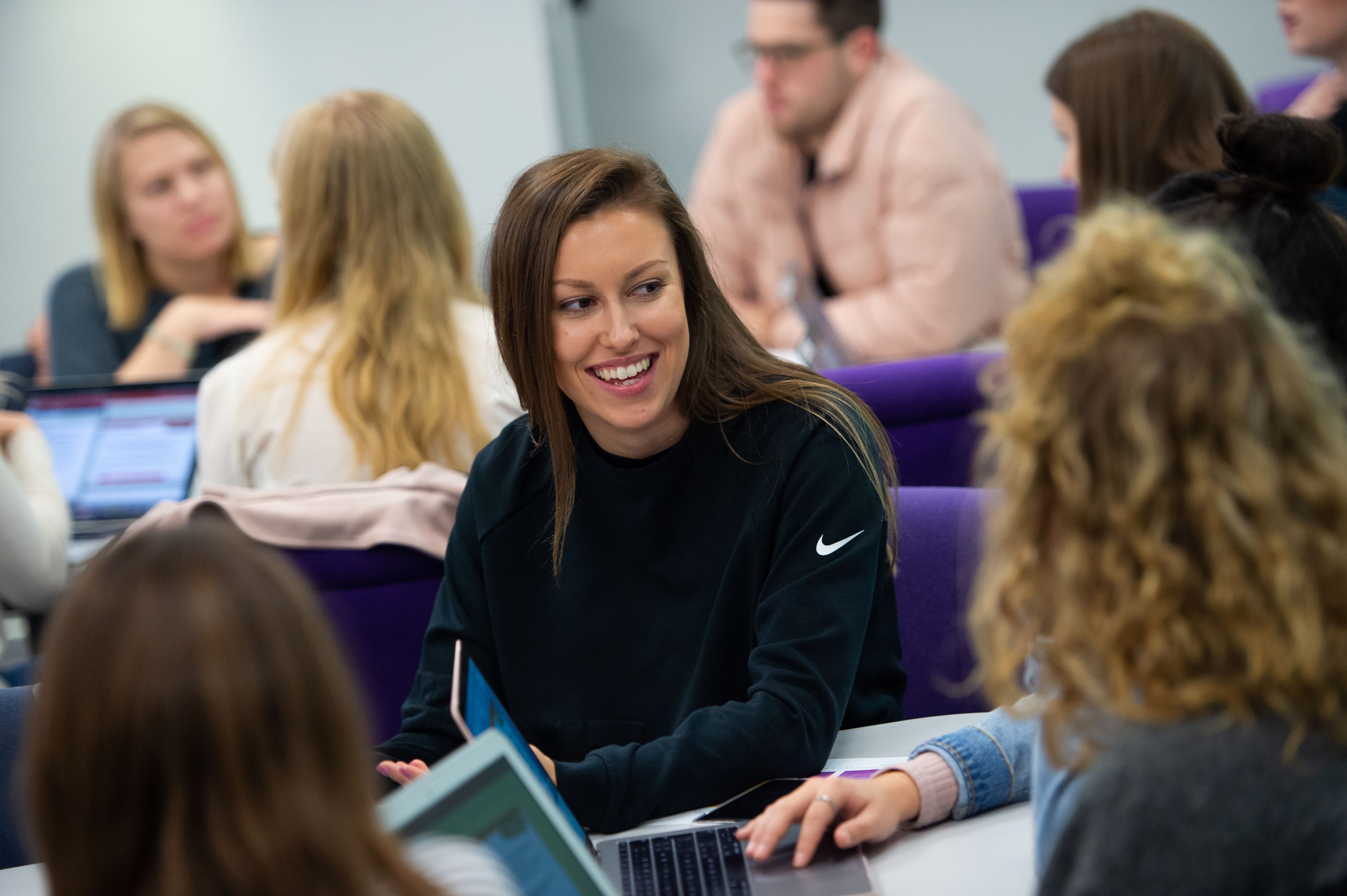From Surrey student to Director at Surfers Against Sewage: Meet Dani Jordan
As a Psychology undergraduate at Surrey, Dani became interested in the environment and returned to study on our Environmental Psychology MSc. Twenty years on, she is now Director of Campaigns and Communities at Surfers Against Sewage, which sees her engaging with the government and the public on why we should protect our ocean, rivers and lakes. We spoke to her about studying at Surrey, how water has been a theme of her career, and her advice for anyone wanting to make a change in the world.

Dani, let’s start at the beginning. What interested you about psychology?
I’m fascinated by people and why they do what they do, how they think and how that changes. I didn’t really know what I’d do with a psychology degree but Surrey did a good job of showing us the opportunities that were available.
While I was studying, I started to think about the environment more and more. I’ve always loved nature and wanted to do something that would have a positive impact so the Environmental Psychology masters was perfect for me.
Was there anyone at Surrey who inspired you?
Birgitta Gatersleben was brilliant and made everything very accessible. She holds you to a high standard but makes you feel like you can do well. I also remember a networking event where they invited someone from Defra [the Department for Environment, Food and Rural Affairs] to talk to us. That was a pivotal moment for me as I found it fascinating and realised what you could do with your career and how it can be meaningful.

I’d say psychology has influenced everything I’ve done. I’m always bringing it back to people – how they think, how you’re going to be able to influence people to make better decisions.
Water has been a theme of your career, with research, policy and campaign roles at Waterwise and WWF. What about it appeals to you?
I worked on a behaviour change project at one point, which involved trying to get people to be more efficient with water use in their homes. That was the start of it and I never looked back! It’s funny as I didn’t really know anything about it but I was at Waterwise for eight years in various roles, often leaning on those research skills from my MSc. There was also a lot of behaviour change, like advising water companies on how to communicate effectively with customers on projects.
You mentioned research skills – in what other ways have your degrees informed or influenced your career?
I’d say psychology has influenced everything I’ve done. Even in deep policy work, which is quite technical. I’m always bringing it back to people – how they think, how you’re going to be able to influence people to make better decisions. You can have a great idea but it won’t work if it’s communicated badly or people don’t understand it.
In terms of specific skills, along with research, report writing is a big one I’ve used a lot, as well as conducting surveys and analysis. They’ve been so relevant to my career.
What advice do you have for students who are thinking about their next steps and how to start their career?
Of course, it’s important to get a degree and have academic experience, but as an employer, I want to know if you can use it! I always say to people, get a job – any job – while you’re studying because the skills and experience you gain are invaluable. I’ve done so many jobs. The confidence to stop people and survey them on the street comes from working behind a bar and knowing how to handle people.
The other thing I’d say is find the thing that really interests you and fires you up, because your authenticity will come across to employers.

We have a saying at Surfers Against Sewage: ‘From the beachfront to the frontbench’. It’s about bringing the power of communities – their expertise and knowledge and their voices – together to make sure they can’t be ignored.
Let’s talk about what you do now. For people who aren’t familiar with Surfers Against Sewage, can you explain what the organisation is all about?
Surfers Against Sewage was founded in 1990 by surfers in St Agnes, Cornwall who were fed up of surfing in sewage (literally). It was so bad back then, untreated sewage was the norm. They came together as a pressure group initially but made amazing progress in terms of improving how sewage is treated on our coastlines. Fast forward 35 years and we find ourselves in another crisis of sewage pollution. But it’s not just the ocean; we want to clean up rivers and lakes for the sake of nature and for people. We see ourselves as the voice of water users around the UK, from surfers to swimmers, paddle boarders, kayakers, anglers. We also work on plastic pollution and we’re starting to work on chemical pollution more now too.
What does your role as Director of Campaigns and Communities involve?
I’ve got a great role! I oversee our campaigning and media work, and our stunts: I organised our ‘forever poo’, a giant inflatable poo, to be taken around the UK. We do policy and advocacy work, and political engagement. We have a saying: ‘From the beachfront to the frontbench’. It’s about bringing the power of communities – their expertise and knowledge and their voices – together to make sure they can’t be ignored.
Lobbyists who are fighting for the opposite of what we want will use technical, complicated language to try to bury their point, so we need know how to explain it to people in a way they’ll understand. It’s about boiling it down to the facts and making our message cut through the noise. It’s really hard work and a lot of fun.
What’s the thing you’re most proud of, so far?
I think probably the stand-out one is our general election campaigning. It was brilliant: to go and run hustings around the country, on beaches and riverbanks, and really help communities engage with the process of an election. And just recently we’ve had our Paddle-Out Protests around the country, which is an amazing day of community power.

I’m driven by the belief that you can make change. The most important thing anyone can do is engage with decision-making processes, whether that’s at a local level or higher up.
What drives you in your work?
My passion lies in public engagement. Providing people with the tools and agency to unleash their own power is what drives me, especially when you realise how many institutions are propped up by money and power and how that works across the globe. And I want to protect our planet. Twenty years ago, climate change was a future threat we needed to mitigate rather than a current threat we need to adapt to. I want there to be something left for my children.
Some people may feel helpless or unsure about how they can make a difference. What would you say to them?
I’m driven by the belief that you can make change. The most important thing anyone can do is engage with decision-making processes, whether that’s at a local level or higher up. Take an interest in what your local council is doing right through to government and beyond.
It’s been really interesting for me, coming from an environmental psychology background, to see how we can change people’s behaviours. The narrative of individual action has been pushed by those who are polluting and destroying our planet to essentially disempower people and divert our attention from the fact that the big systems of money and power are the things that need to be dismantled and changed.
So, my advice is to take action. No action is too small.
Your work is clearly your passion, but what are you interested in outside of that? Do you surf?
I am very much a beginner when it comes to surfing, but I love being in the water and I swim and paddle board. I’m also on the local ladies’ cricket softball team – it’s become an obsession.
I appreciate time in nature more now I’m older. And we know now – coming back to environmental psychology – that if children have access to nature and appreciate it when they’re young they get all the benefits from it as adults.
My perfect Sunday afternoon would be going for a walk with my kids, in the woods or by the water. I love it.
Follow Dani on LinkedIn and visit Surfers Against Sewage to find out more about their work.
Download the Safer Seas and River Services (SSRS) app to see the latest data on water quality around the UK.
